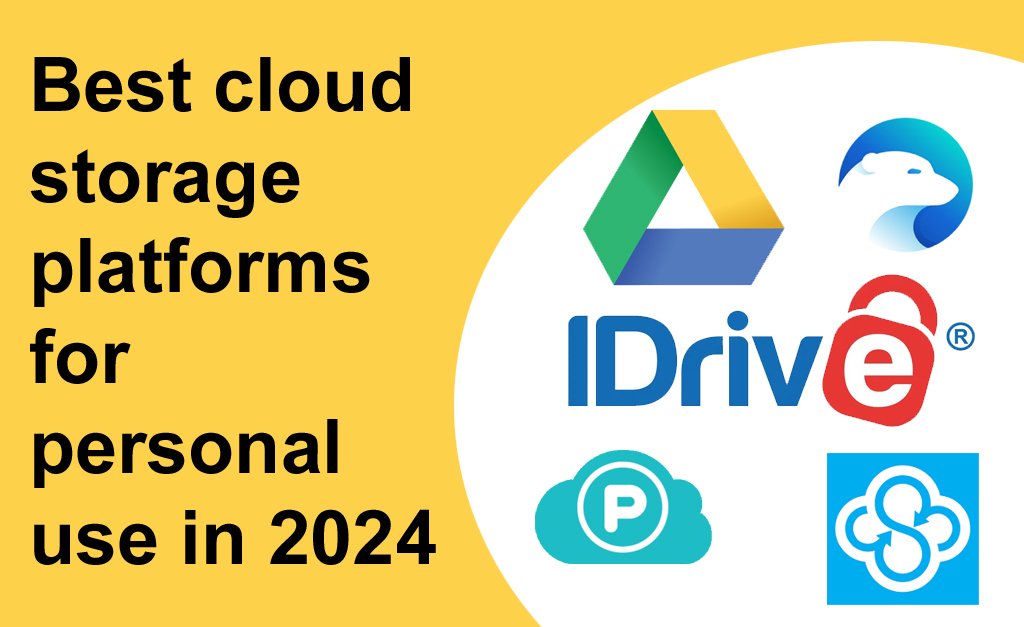What Is Cloud Storage and How It Can Benefit You in 2024
Cloud storage is revolutionizing how we manage and access information in 2024. Imagine seamlessly storing and accessing your files from any device, anywhere in the world. Cloud storage is essentially a virtual repository for your files, accessed via the internet, providing accessibility and convenience beyond traditional storage methods. Many individuals and businesses face challenges with traditional storage methods, including limited storage space, security concerns, and difficulty collaborating on projects. This comprehensive guide will explore what cloud storage is, its diverse applications, and the benefits it can bring to you in 2024. We’ll cover crucial aspects such as cost, security, and various providers. Let’s dive into this exciting realm of digital storage.
Understanding Cloud Storage: A Modern Approach to Data Management
Defining Cloud Storage
Cloud storage, in essence, is a service that allows you to store your data on remote servers, accessible via the internet. Instead of relying on local hard drives or physical servers, cloud storage leverages the vast infrastructure of providers like Google Drive, Dropbox, and Microsoft OneDrive. This model eliminates the need for on-site storage, offering significant advantages in terms of accessibility and scalability. Cloud storage operates on a pay-as-you-go model, allowing users to scale their storage needs based on their requirements and budget. It’s an extremely versatile solution, suitable for both personal use and enterprise applications.
The Growing Demand for Cloud Storage
Cloud storage’s popularity has skyrocketed in recent years. With the rise of remote work and increased reliance on digital tools, the demand for accessible and secure data management solutions has surged. Individuals and businesses are increasingly embracing the flexibility and security that cloud storage offers.
Addressing the Challenges of Traditional Storage
Traditional storage methods, such as physical hard drives, can suffer from limitations in terms of capacity, portability, and security. Data loss due to hardware failure is a constant concern. Furthermore, traditional storage can pose challenges in terms of collaboration, as multiple users often need separate copies of files. Cloud storage provides a powerful solution to these problems, offering unparalleled scalability, collaboration features, and security.
Exploring the Benefits of Cloud Storage in 2024
Enhanced Accessibility and Portability
One of the most compelling advantages of cloud storage is its accessibility. Users can access their files from any device with an internet connection, whether it’s a desktop computer, laptop, tablet, or smartphone. This unparalleled portability makes cloud storage a boon for individuals on the go or those working remotely. Files are instantly synchronized across devices, ensuring that everyone has access to the most up-to-date information, fostering seamless collaboration.
Streamlined Collaboration and Teamwork
Cloud storage facilitates effortless collaboration among team members. Multiple users can access and edit files simultaneously, fostering real-time communication and reducing delays. This collaborative environment significantly boosts productivity, especially in teams with remote members. Real-time feedback and version control are hallmarks of this enhanced collaborative experience.
Robust Security Measures
Cloud storage providers typically invest heavily in security measures to protect user data. Advanced encryption techniques, multi-factor authentication, and secure access controls are commonly implemented. These safeguards help mitigate risks associated with data breaches and unauthorized access, reassuring users about the safety of their sensitive information. Continuous security updates and robust infrastructure contribute to overall data protection.
Choosing the Right Cloud Storage Provider
Evaluating Storage Capacity and Pricing Plans
When selecting a cloud storage provider, carefully consider the available storage capacity and associated pricing plans. Many providers offer various packages to suit different needs and budgets. Understanding the pricing tiers and evaluating the storage capacity needed is essential to avoid unexpected costs. Consider factors such as long-term storage costs, file synchronization, and frequency of access to estimate your overall requirements.
Understanding Security Protocols and Data Recovery Options
Data security is paramount. Thoroughly research the security protocols employed by different providers. Look for providers with robust encryption methods, access controls, and data recovery options to minimize potential risks. Understand how data backups and recovery mechanisms are handled to ensure business continuity and data integrity.
Assessing Customer Support and User-Friendliness
Comprehensive customer support is invaluable, especially when encountering technical issues. Research customer support channels, response times, and availability to assess the provider’s responsiveness and reliability. A user-friendly interface ensures that files can be easily managed and accessed, making cloud storage an intuitive tool for various users. Consider ease of use and the overall user experience, including features like search, sharing, and organization.
Real-world Examples and Case Studies
Streamlining Business Operations with Cloud Storage
Many businesses have successfully leveraged cloud storage to streamline their operations. A marketing agency, for instance, used cloud storage to share project files with clients and team members, enabling seamless collaboration and quick project updates. The ability to access and edit documents from anywhere contributed significantly to increased productivity.
Enhancing Collaboration and Communication in Education
Educational institutions have also benefited from cloud storage solutions. Teachers can share lesson plans, assignments, and resources with students easily. Online collaboration tools facilitated smoother communication between teachers and students, enhancing the learning experience.
Using Cloud Storage for Data Backup
Cloud storage provides an excellent platform for backing up important data, eliminating the risk of data loss from local storage devices. Small businesses and individual users can use cloud storage to create additional backups for critical files, ensuring that data is secure and accessible in case of emergencies.
Related Post : Cloud Computing in 2024 Latest Advancements and Applications
The Future of Cloud Storage
Cloud Storage and Emerging Technologies
Cloud storage is continually evolving to adapt to emerging technologies and advancements. Integration with artificial intelligence (AI) and machine learning (ML) could lead to more intelligent storage systems. Advanced search features and intelligent data organization, powered by AI, are expected to enhance user experience.
Cloud Storage and Sustainability
The environment plays a crucial role for businesses in the future of cloud storage. More companies are focusing on sustainable infrastructure. Cloud storage providers are working to reduce their environmental footprint by optimizing data centers and adopting more sustainable energy practices.
Trends and Innovations in Cloud Storage
Trends in cloud storage emphasize user experience and greater integration with other productivity apps, such as calendaring and project management. The focus is on automation of file management tasks and predictive analytics to prevent data loss or corruption. Users can anticipate future solutions that automate file backup and restoration processes for enhanced security and efficiency.
Q2: What are the potential security concerns related to cloud storage?
A2: While cloud storage providers employ robust security measures, potential security risks do exist. Data breaches and unauthorized access remain possibilities, though they are generally less common than with traditional storage. Security breaches can still occur; therefore, users should always carefully select providers with proven security measures and protocols, such as encryption, multi-factor authentication, and regular security updates. Understanding how the provider handles data breaches and recovery procedures, in addition to reviewing their terms of service, is crucial.
Q3: How much does cloud storage typically cost?
A3: Cloud storage costs vary depending on the provider, storage capacity, and the specific features included in their plans. Some providers offer subscription-based models with tiered pricing based on storage space and usage. Users should compare pricing models from different providers to determine which plan aligns with their needs and budget. Factors such as data transfer rates, support features, and storage redundancy may also influence overall costs.
Q4: Are there any alternatives to cloud storage for backing up data?
A4: Alternatives to cloud storage include local backups, external hard drives, and specialized backup solutions. Local backups rely on local storage devices, potentially leading to data loss if the device fails. External hard drives provide an extra layer of storage but can still be vulnerable to damage or theft. Specialized backup solutions offer robust features but may come with a higher cost. Cloud storage, therefore, represents a cost-effective and secure solution for data backup when compared with these other options.
In conclusion, cloud storage in 2024 offers significant benefits for individuals and businesses alike. Its accessibility, scalability, and security features make it a compelling choice for data backup, collaboration, and content management. Choosing the right cloud storage service depends on your specific needs and priorities. Consider factors like storage capacity, pricing plans, security protocols, and customer support when making your decision. By understanding the advantages of cloud storage and thoughtfully selecting a provider, you can unlock its potential to optimize your workflow and enhance your productivity. Ready to experience the seamlessness and convenience of cloud storage? Explore the options available now!
Share this content:














Post Comment